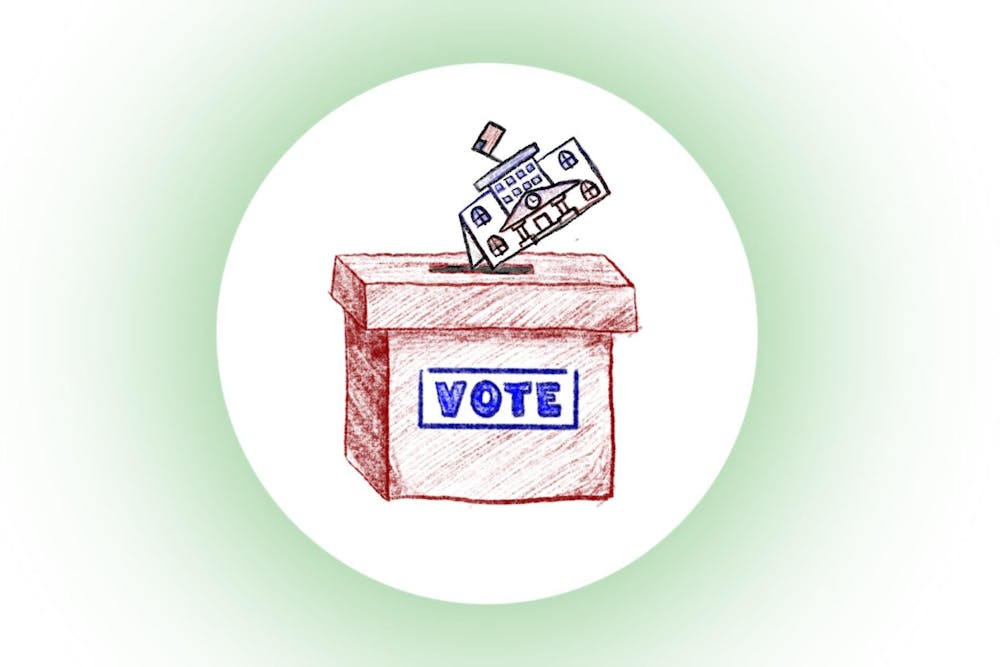Americans’ main concerns over the 2024 elections are varied, ranging from immigration to the economy. But, for some professors, the issues at stake hit particularly close to home — especially those related to education policy.
Faculty of the University expressed concerns regarding the future of diversity, equity and inclusion and federal funding for both K-12 schools and higher education. They noted the two 2024 presidential candidates offered very distinct platforms.
For Kenneth Wong, a professor of education policy, international and public affairs, and political science, the foundational difference between the Democratic and Republican parties’ policy plans is that Vice President Kamala Harris aims to address systemic inequality through federal involvement, while former President Donald Trump plans to reduce the involvement of the federal government as a whole.
Harris plans to expand government programs like Title I, which provides financial support to schools with many low-income students. She has also expressed support for early childhood education programs. Trump, on the other hand, hopes to empower state and local governments to determine their own education policies.
“Voters need to think about whether they want to support one vision versus the other,” Wong said.
Christopher Cleveland, an assistant professor of education and education policy, also said that Democratic candidates might support more federal engagement in equity issues compared to Republican candidates. He noted that the Democratic Party has historically prioritized the role of both Title I and federal funding in supporting disadvantaged students..
When looking back at Trump’s presidency, Wong recalled how the administration decreased federal funding for the US Department of Education and called for additional budget cuts.
The future of the Department of Education has also been a point of contention during this election cycle.
One of the specific proposals in Project 2025, a list of policy proposals being promoted by the Republican Party, seeks to abolish the Department of Education, according to Juliet Hooker, a professor of political science. Compared to democrats, “that is one big area of difference,” Hooker told The Herald.
Trump has denied involvement in the controversial document, but many top Republicans were involved in the proposal’s creation.
Hooker reaffirmed the high stakes for higher education in the upcoming election, highlighting the Congressional scrutiny of universities and state legislative efforts restricting diversity education within curriculum content, in particular.
Hooker also raised concerns with state-level restrictions regarding discussion of gender identity and sexual orientation in school curriculum.
“A new president won’t be able to stop the momentum of recent challenges to diversity, equity and inclusion policies,” Wong said. But, there is a major difference between candidates: how the federal government will respond. A Harris presidency, he believes, will attempt more federal interference, while a Trump presidency will continue to leave legislation to the states.

Amber Marcus-Blank is a senior staff writer covering undergraduate student life. She is a sophomore from outside of Boston studying Political Science and Public Health on the pre-law track. She is interested in working in politics and journalism in the future and enjoys playing soccer and making playlists in her free time.





